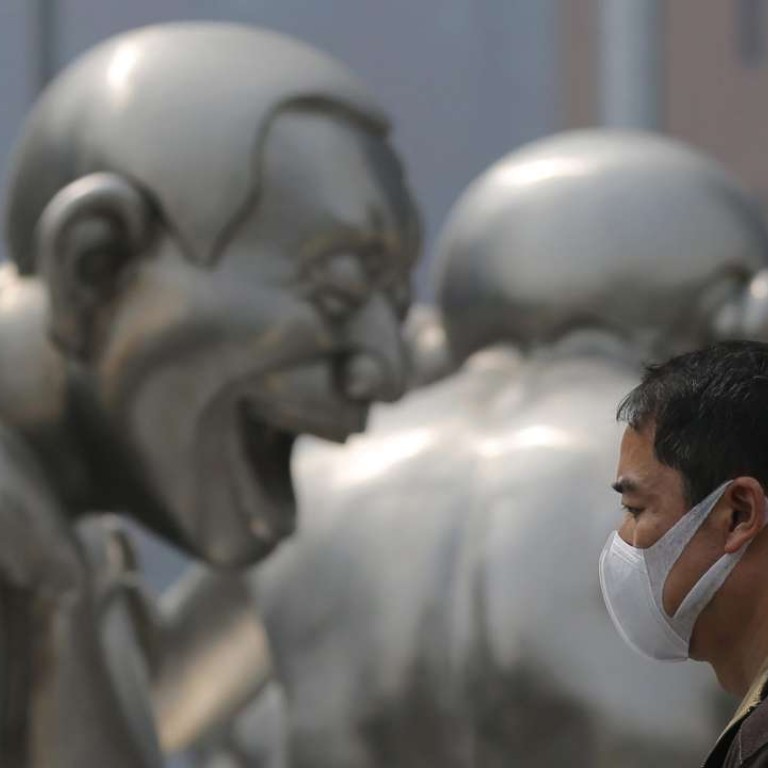
Smog could shrink Chinese economy by up to 2.6 per cent by 2060: study
Air pollution may shrink the size of China’s economy as much as 2.5 per cent by 2060 as a result of workers taking sick days, which will increase medical bills and reduce agricultural output, according to a report that urges governments around the world to enact tougher environmental laws.
The study, by the Organisation for Economic Cooperation and Development (OECD), also forecast the rate of premature deaths would triple from 2010 to 2060.
China’s smog clouds have a silver lining: they may help prevent global warming, claims new study
Globally, outdoor air pollution could cause 6-9 million premature deaths annually by 2060 and cost 1 per cent of world gross domestic product – US$ 2.6 trillion – if no action was taken, it said. The potential impacts of poor air quality were “very significant and underscore the need for strong policy action”, said the Paris-based OECD, which advises more than 30 developed nations.
“The number of lives cut short by air pollution is already terrible and the potential rise in the next few decades is terrifying,” said OECD environment director Simon Upton.
The number of lives cut short by air pollution is already terrible and the potential rise in the next few decades is terrifying
“If this is not motivation enough to act, this report shows there will also be a heavy economic cost to not taking action.”
Severe air pollution caused more than 3 million premature deaths in 2010, with the elderly and children the most vulnerable, the report found.
It forecast the biggest rises in mortality rates from air pollution in India, China, Korea and Central Asian countries like Uzbekistan, where rising populations and congested cities meant more people were exposed to power plant emissions and traffic exhaust. However, death rates were stabilising in the United States and falling in much of western Europe thanks in part to efforts to move to cleaner energy and transport, the report said.
Why air pollution is damaging more than just your breathing
The number of work days lost to air pollution-related illness globally would rise to 3.7 billion from 1.2 billion between 2015 and 2060.
Pollution globally cost about US$21 billion last year, a figure set to rise more than eightfold to US$176 billion because of economic growth in countries including China and South Korea.
A study released early last year by Greenpeace and Peking University found that PM2.5 – the tiny particulates most damaging to health – led to about 257,000 premature deaths on the mainland in 2013. That meant its mortality rate – of 90 in every 100,000 people – was higher than that of smoking – recorded in 2012 as about 70 in every 100,000 people.

